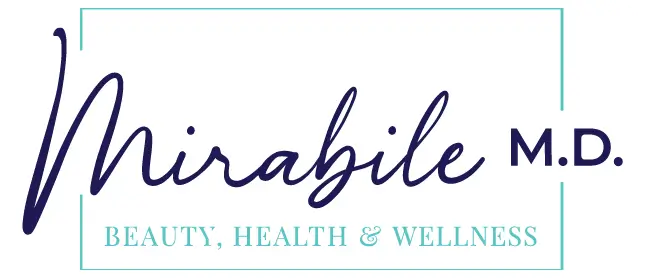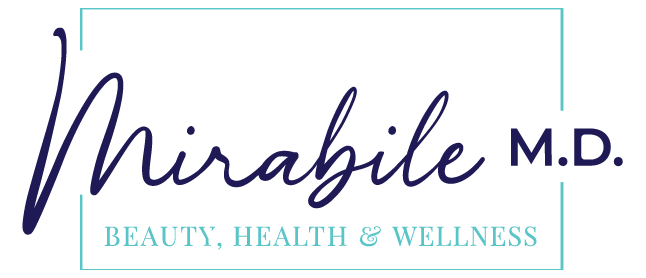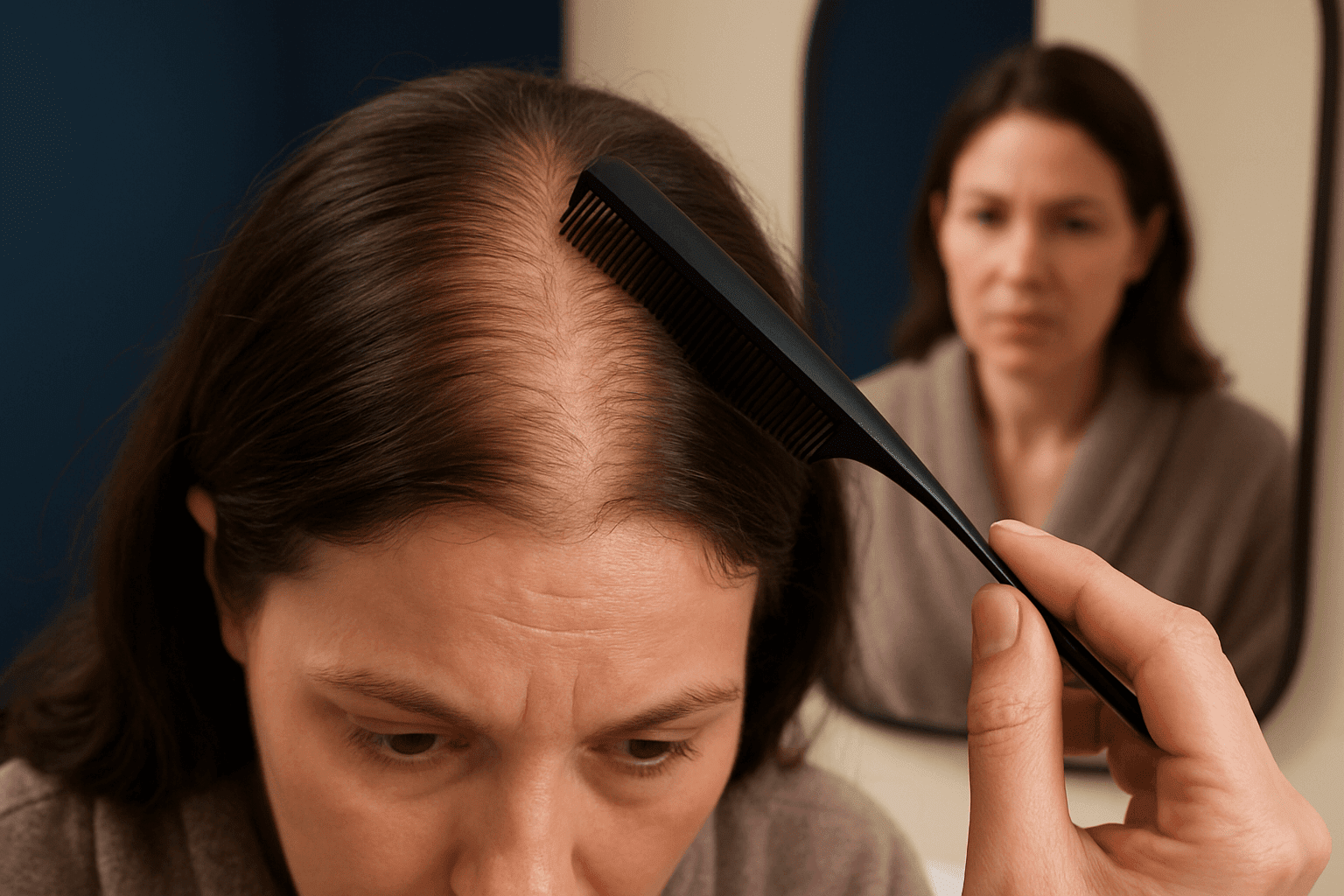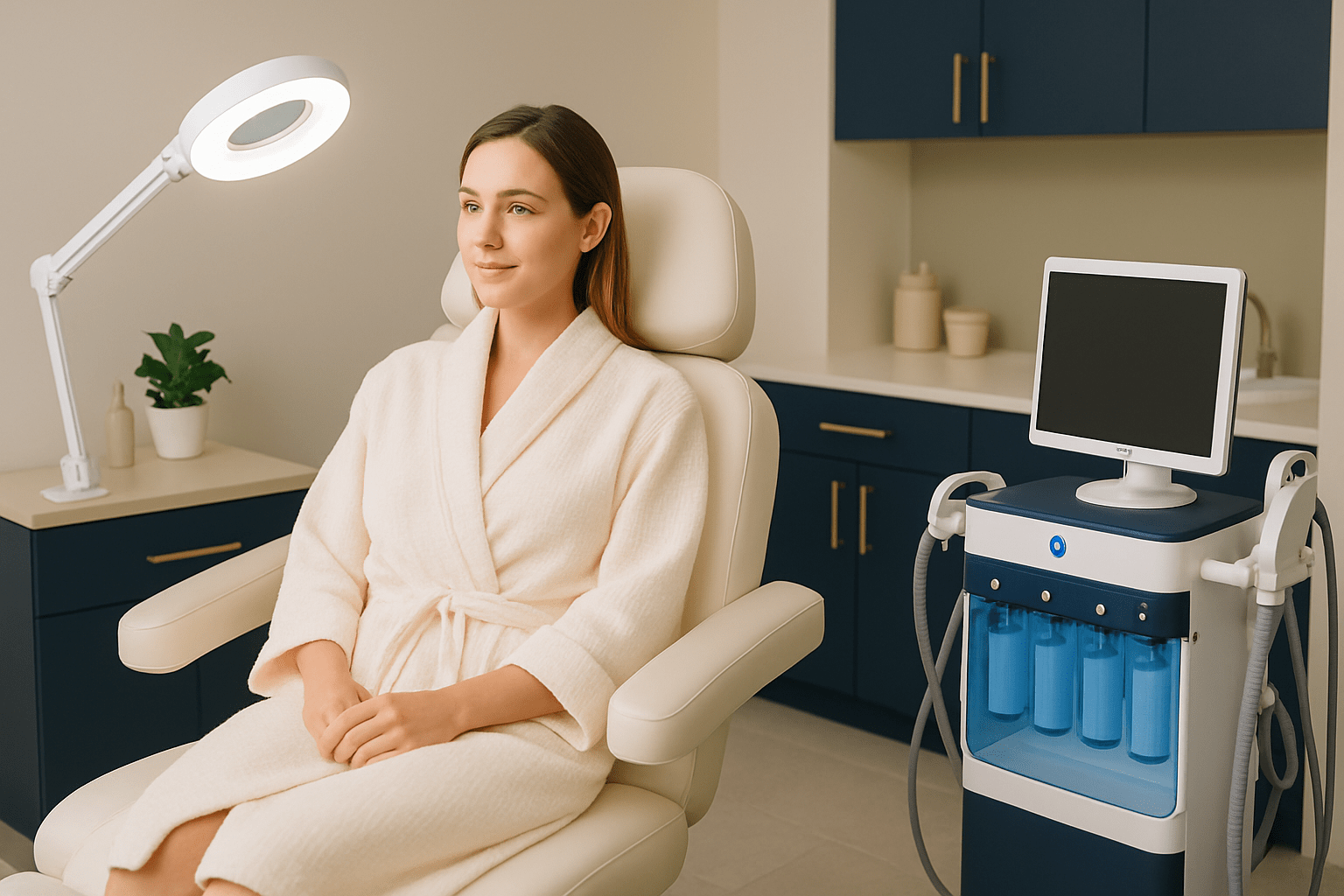Thinning hair or sudden hair loss can feel alarming—especially when it seems to come out of nowhere. For many women, hormones and hair loss are closely linked, with shifting levels at different life stages often driving the change. But separating facts from myths, and knowing your treatment options, is the key to restoring confidence and reclaiming healthy hair.
Jump To:
TLDR – Quick Guide
- Hormonal changes: Pregnancy, menopause, thyroid disorders, and stress can all trigger hair loss in women.
- Common myths: Not all hair loss is permanent or inevitable; early intervention can make a difference.
- Diagnosis: Identifying the true cause requires lab testing and a full health history.
- Treatments: Evidence-based therapies include hormone balancing, topical solutions, and regenerative medicine.
- Results: Individualized plans deliver the best long-term results.
Detailed Breakdown
How Hormones Affect Hair Growth and Loss
Hair growth is influenced by a complex interplay of hormones. Androgens (male hormones present in both sexes), estrogen, thyroid hormones, and even cortisol all play critical roles. Fluctuations during pregnancy, postpartum, menopause, or due to medical conditions can disrupt the natural hair cycle, leading to more hair shedding or thinning than usual.
Major Causes of Hormonal Hair Loss in Women
- Menopause: Decreased estrogen and increased androgen activity can shrink hair follicles, causing thinning.
- Thyroid disorders: Both overactive and underactive thyroid function can disrupt hair growth.
- Postpartum changes: After childbirth, many women experience increased shedding as hormones rapidly shift.
- Polycystic ovary syndrome (PCOS): High androgen levels often result in both scalp hair loss and unwanted hair growth elsewhere.
- Stress: Elevated cortisol can push hair into the shedding phase, sometimes months after the initial stressor.
Busting Common Myths About Hormones and Hair Loss
- Myth: Hair loss is always genetic or untreatable.
Fact: Many hormonal causes of hair loss are reversible or manageable with the right approach. - Myth: Only men experience hormone-related hair loss.
Fact: Women are equally affected, especially during times of hormonal change. - Myth: All hair loss treatments are the same.
Fact: The best results come from personalized, evidence-based plans developed with a medical provider.
Evidence-Based Treatments for Women
1. Hormone Balancing
- Addressing thyroid dysfunction, PCOS, or menopause-related imbalances through medical therapy can often restore hair growth.
2. Topical and Oral Solutions
- FDA-approved treatments like minoxidil, anti-androgen medications, or specific supplements can stimulate regrowth and slow loss.
3. Regenerative Medicine
- PRP (platelet-rich plasma) therapy, low-level laser therapy, and microneedling have shown promise for some women.
4. Lifestyle and Nutrition
- Managing stress, eating a nutrient-rich diet, and correcting deficiencies in iron, vitamin D, or biotin support overall hair health.
Key Takeaways
- Hormones and hair loss are often connected—especially during major life transitions.
- Myths about inevitability and permanence can prevent women from seeking effective help.
- Early, individualized intervention leads to the best outcomes.
- Evidence-based options range from hormone therapy to advanced regenerative treatments.
- Working with a knowledgeable provider is essential for accurate diagnosis and optimal care.
Frequently Asked Questions
1. Can birth control pills affect hair loss?
Yes, certain oral contraceptives can impact hormone levels, potentially causing or alleviating hair loss. Consult your provider to discuss the best options for your needs.
2. How long does it take to see results from hair loss treatment?
Most treatments require three to six months before noticeable improvement occurs, as hair growth cycles are slow.
3. Is stress-related hair loss reversible?
Often, yes. Once the underlying stressor is managed and addressed, hair typically regrows over several months.
4. Can supplements help with hormonal hair loss?
Supplements can correct deficiencies that contribute to hair loss, but they work best when used alongside other targeted therapies.
5. Should I see a specialist for hair loss?
Absolutely. A thorough evaluation by a provider with experience in hormones and hair loss ensures the most accurate diagnosis and the best, safest treatment plan.








